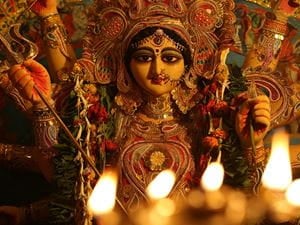
Hinduism includes belief in an afterlife among its basic tenets of the religion. The Hindu belief in an afterlife is a foundational aspect of the religion.
The Hindu belief in the afterlife was not central to the earliest Hindu scriptures. The earliest Hindu scriptures, the Vedas, discuss the afterlife almost not at all. There is very little discussion what happens to an individual once he or she dies, or whether one’s deeds on earth will impact his or her soul after death. There are some moments which allude to such ideas, including a text in the Rig Veda which suggests that there are different places that different people go to after their own deaths, but such references are bare and infrequent. The Vedas, rather, focuses on actions that Hindus can accomplish on earth, including ritual performance and the right ways to offer sacrifices and devote oneself to the gods.
The more robust discussions of afterlife belief in Hinduism come in the Upanishads, another central text for many Hindus. The Upanishads put much greater emphasis on discussions about what happens after someone dies. These include stories of various scholars or holy individuals who discuss with the various gods the fate of humans after they die. One of the central messages of the Upanishads is that one who is interested in knowing the fate of humans must study the nature of the self. This is core of the belief that Hindus who wish to perfect their nature must follow a rigorous path of study and action.
The Hindu belief in the afterlife is the result of the Hindu belief in reincarnation, and ultimately moksha, the level of attainment in which the soul is freed from the process of reincarnation. In most Hindu understandings, the afterlife is a short interval between when a soul dies in this current incarnation and is born into a new incarnation. The new incarnation, a process known as reincarnation, is chosen depending on the deeds of the person in both their immediate past life and in the many past lives beforehand. The goal of reincarnation is to cycle the soul through a period of birth and death which will purify and strengthen the soul, until it has perfected itself. Once this process is complete, and the human being has become the perfected version of themselves, they have attained moksha, and do not need to be reborn again.
Different Hindu traditions have different understandings of how the afterlife process of reincarnation is regulated. In some traditions, the main god oversees the process, such as Vishnu or Shiva, depending on the tradition. Other traditions remove the role of divine beings entirely, and understand karma to be a system that operates on its own, and motivates the cycles through which the afterlife is regulated.
For more information about Hindu beliefs about the afterlife, click here.
1/17/2023 7:58:22 PM









